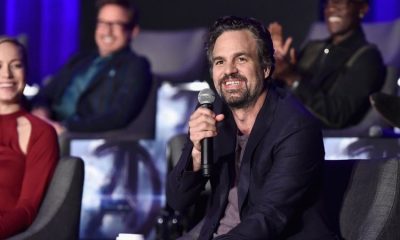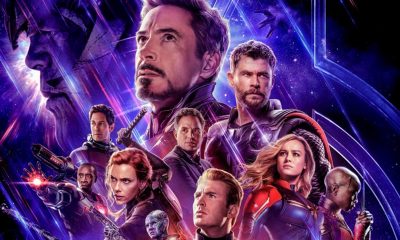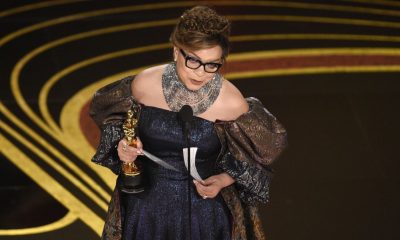Features
#RehireJamesGunn?: How Disney Has Now Changed the #MeToo Movement
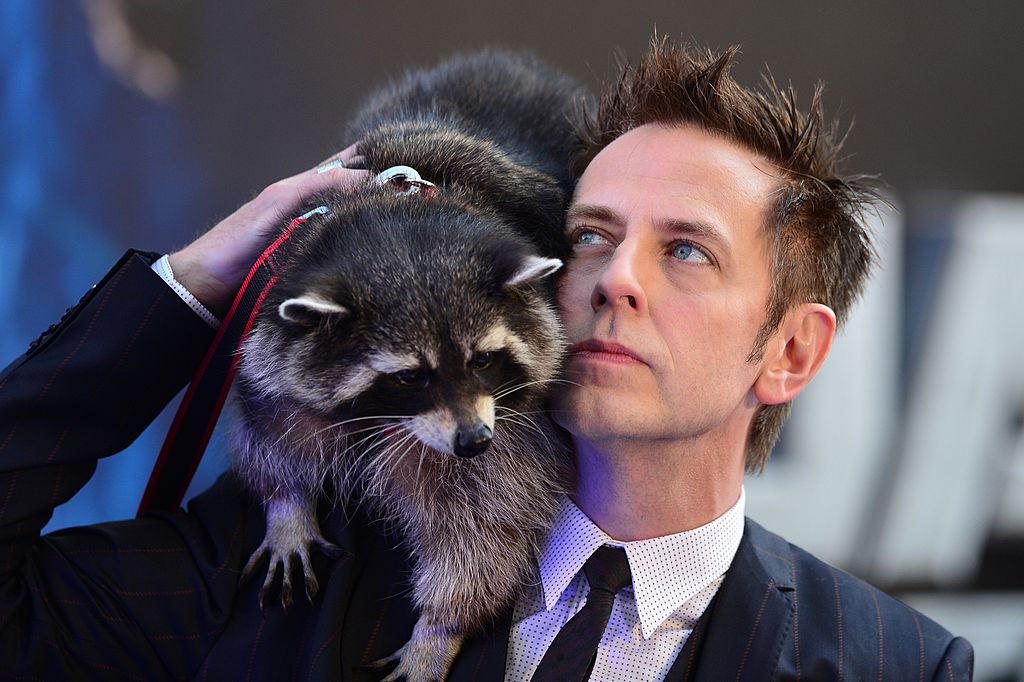
Ladies and gentlemen, welcome to the first scandal of the Marvel Cinematic Universe.
On July 19th, 2018, The Daily Caller dug eight years deep to call out Guardians of the Galaxy director and key MCU figure James Gunn on his really bad, really old, really pedophilic and homophobic slur tweets. The following day, Walt Disney Studios fired James Gunn from Guardians of the Galaxy Vol. 3, making the man who was supposed to lead Marvel’s next cosmic slate of films the latest victim of the #TimesUp movement and a vast cultural reckoning in Hollywood.
Ever since Weinstein’s 30-year history of workplace and sexual harassment and assault was revealed, a lot of people have been rightfully torn down and shut out from their respective positions of power, mostly from Hollywood. However, more than anyone exposed and expelled during the #MeToo movement so far, arguably James Gunn’s case is one of the movement’s most divisive. It has been a day since Gunn was fired and nearly a year since “the Weinstein effect” began, meaning that it is about damn time that we need to analyze this movement at all perspectives, and apply it to the current situation right now.
A PR Analysis of the Mouse House
In our most recent episode of AP Marvel, I had mentioned how Disney’s political stances expressed in Iron Man 2 are similar to Taylor Swift’s silence during the 2016 presidential election. By remaining either firmly in the middle or, in Swift’s case, just completely and problematically silent, she avoided alienating her politically diverse fanbase. Had she voiced support over any particular candidate, she would have been adding to her brand and image, gaining immense favor with one side and setting a tone for her albums and songs to come. But she could have stood to potentially lose millions of fans (and more importantly, sales) from her opposing side.
No matter if you’re 9 or 90, The Walt Disney Company and its subsidiaries have played a part in most, if not all, of your childhood. Like Swift, Disney’s fans are incredibly diverse in a variety of ways – race, religion, and political party. After nearly 95 years, Disney is very much aware of this fact, and have their own ways of handling any type of conflict.
I’ve been remarkably shocked at how airtight and somewhat pristine The Walt Disney Company and their assets, most especially Marvel, have been during the #MeToo movement. None of Marvel’s big stars, executives, or writers have been exposed to an alarming level. The closest that The Walt Disney Company has come to this is John Lasseter, Walt Disney Animation Studios’ and Pixar’s former chief creative officer, who took a six-month leave of absence before being fired by Disney for sexual harassment complaints.
As a small recap, alt-right figure and men’s rights activist Mike Cernovich alongside a concentrated, organized Internet campaign helped to resurface 8-year old tweets of James Gunn, in which he made jokes such as “Three Men and a Baby They Have Sex With #unromanticmovies,” and “The best thing about being raped is when you’re done being raped and it’s like ‘whew this feels great, not being raped!’ Discovery of these tweets were not recent news, and Gunn has apologized for them in 2012. Gunn apologized once again on Thursday, but this did not stop Disney from making their final decision.
Let’s look at Disney’s statement on James Gunn’s immediate termination, made by Walt Disney Studios chairman Alan Horn:
“The offensive attitudes and statements discovered on James’ Twitter feed are indefensible and inconsistent with our studio’s values, and we have severed our business relationship with him.”
I want to compare this scandal to another similar situation The Walt Disney Company faced back in late May. It is impossible to forget the swift renewal and cancellation of ABC’s monster hit Roseanne after lead star Roseanne Barr tweeted “Muslim brotherhood & planet of the apes had a baby=vj,” targeting former Obama White House adviser Valerie Jarrett.
Now let’s look across the company at Disney’s statement on firing Roseanne Barr, made by ABC Entertainment president Channing Dungey:
“Roseanne’s Twitter statement is abhorrent, repugnant and inconsistent with our values, and we have decided to cancel her show.”
Hmm. This looks familiar.
There are few similarities between these two situations. One of them, obviously, is Twitter’s role in it. The other is that both Barr and Gunn chose to share their incredibly vile and offensive opinions. The big difference is timing and maturity. Roseanne Barr, a 65 year old woman, neglected to keep her mouth shut in 2018 and decided to compare Valerie Jarrett to an ape. Despite apologizing, Barr would go on to continue to spout her own racist nonsense just to put her name in a story.
James Gunn, 41 at the time of the tweets was also trying to put himself in a headline back in 2008, so he would say anything and everything. In the past ten years, he has matured to produce some of his best work and to become a better person, apologizing for his words numerous times. Gunn was targeted by conservative politicians who frequently conjure up #fakenews stories and “enjoy just the raw human visceral reaction of jumping into the arena and just swinging the hammer and seeing what is left over afterwards,” Cernovich said to TheWrap.
Unfortunately, this is how The Walt Disney Company handles scandal. It is cookie-cutter and meant to be as passive as possible, making you focus on the news itself than their words and what they say. Adamantly, Disney stays neutral. If forced to make a decision, Disney would prefer to give the louder dog a bigger bone.
But as for Lasseter, whom I mentioned earlier? Towards the end of his six-month leave of absence, there were reportedly still talks of the man responsible for ushering Disney’s animated films to the top of their class returning to work for Disney. In fact, despite being formally released in June, Lasseter will take on a consulting role until the end of the year. Disney’s statement did not acknowledge the reasons for John Lasseter’s departure from the company, and no indication of an investigation into his conduct was made. It seemed like the Mouse House was trying to have their cake and eat it too by putting Lasseter on time-out before he could come back and play.
It is worth emphasizing that this was a decision made by The Walt Disney Company, and not Marvel Studios themselves. Kevin Feige did not release a statement—Alan Horn did. More importantly, as of now Kevin Feige has not said anything, either choosing to take time and process what’s happening in order to respond (or take action) later, or to adopt Disney’s silent, neutral strategy.
The Future of Guardians of the Galaxy and James Gunn
In both his apologies, James Gunn cites how he and his humor have matured, and how he’s become a changed man overall. On Facebook, he takes the time to answer as many questions as he can in the best way he possibly could. He’s open about his creative process and stands up for the little guys. He is humble and candid about his mistakes so others can learn from his example. Anyone looking at his movies can clearly see his development as a filmmaker, creating his own unique style of weirdness and humor that was able to land him Guardians of the Galaxy in the first place. And that decision has resulted in one of Marvel Studios’ best films and a concrete, beautiful vision of a whole different corner of the Marvel Cinematic Universe.
This is probably not the first case of a good man being taken down by his horrendous past. The Weinstein effect empowered people to speak up to right up to 30 years of wrongs, helping to take power from those who have abused it. In its infant year of conception and implementation, supporters of #MeToo and #TimesUp are shifting the power landscape as quickly as they can to make sure sexist, racist people who use people for their own means and gains never are put in a position of power again.
As time has passed, the efforts of #MeToo and #TimesUp are now proving to be a mishandled double-edged sword. Conservatives and alt-right supporters have used the movement to gang up on people in power they deem dangerous to their position, like outspoken political liberal and Trump critic James Gunn. Others have used the movement as an excuse for attention and foot traffic, such as babe.net: a site with no credibility nor class inflating a narrative on Aziz Ansari’s sexual misconduct, thus resulting in sloppy journalism.
Having to equate James Gunn today as a man who joked about child molestation ten years ago is difficult but just. Maybe it has been hard for us to process because of who James Gunn is in general, a man who literally dances like Baby Groot and relates the most to a talking raccoon than any of the characters in his blockbuster hit film. This scandal is another reminder, among the countless we face every day, of the reason why we watch superhero movies: to escape from realities like these, that the hero we thought would always be there for us has been nearly as bad as his archenemy.
Seeing James Gunn fall swiftly from grace has been hard for any Guardians fan or Marvel fan. No matter who comes under fire, these kinds of scandals force us to question who that person really is who they portray themselves to be. But the nature of these movements is Dredd-like, and has always been to find said abuser, quickly expose them, and snuff them out. Cernovich saw this and expected it to happen, and he was right.
However, to quote AP Marvel co-host Anthony Paone, taking Guardians of the Galaxy Vol. 3 from James Gunn is exactly like stealing a baby.
Kevin Feige hired James Gunn to make a “James Gunn movie,” not a completely obvious and blatant Star Wars ripoff. After news first broke out, we at Marvel News Desk threw out some potential names we’d like to see: Nicole Perlman in her first directing stint, Rian Johnson, Taika Waititi, Brad Bird, Gina Prince Blythewood, Kelly Fremon Craig, or Jordan Peele. But the reality is, no one could ever replicate a “James Gunn movie;” no one will ever be able to do as good of a job with Guardians of the Galaxy Vol. 3 as James Gunn could have.
While it was stupid for Gunn to keep his older tweets even after he apologized for the first time in 2012, Disney knew what they were getting into when hiring James Gunn, who has now delivered above and beyond for the company.
Now, James Gunn and Disney have put the #MeToo movement under a microscope once again. Unlike other Hollywood men who have fallen from grace, James Gunn is a born-again liberal, a man who has recognized he was wrong and has always sought to redeem himself, repenting by helping to teach others and fighting for what is right. #MeToo has targeted one of the movement’s own and has been weaponized by conservatives. Followers now need to step back, and consider how redemption plays a role in #MeToo.
In order to continue to thrive, the #MeToo movement needs control. #MeToo started as a hashtag meant to unite victims of sexual harassment in their solidarity and struggle. Now that we are united, we all need to focus those efforts into keeping that movement alive. The #MeToo movement needs to have clarifications, and needs to stop addressing justice in a swift black and white matter. The #MeToo movement needs to understand the difference between calculated attacks and signs of a person’s true nature. It needs to recognize cases of redemption, and should not take people away from a second chance if they are deserving of it.
Words cannot describe the impact #MeToo has had on not just the entertainment industry and on my personal life. It has made me feel empowered to speak out and hopeful in my future. However, I am terrified that it will die out quickly if we cannot control it to be used justly.
But Could Disney Have Actually Done Anything?
Unfortunately, no. In order to appease their neutral image, Disney had no choice but to bow into the demands of the conservative alt-right. A part of me, the one that still believes in the goodness of the world, hopes Kevin Feige will swoop in, save the day, and #RehireJamesGunn. The realist in me knows that for the first time, Feige’s hands are tied on this front. The realist in me was also appalled by what Gunn has said in the past, and hasn’t felt this way since Weinstein’s allegations were first brought to light.
However, this does not stop me from saying that I believe Disney made a swift, irrational decision.
In the wake of Gunn’s exit, Marvel faces a slightly Edgar Wright-like situation: no matter who they decide to hire, their announcement is going to receive a ton of hate. Within the Guardians franchise, Gunn will always seem irreplaceable. At best, Guardians of the Galaxy Vol. 3 will be another Ant-Man: an attempt to try to mimic Gunn and find a replacement for a core component they have lost. At worst, Marvel has their first Cars 2. But while I love Ant-Man, I loved Guardians of the Galaxy a lot more.
Furthermore, without realizing it, Disney has harmed their neutral image.
I’d like to remind everyone that Mike Cernovich was charged for raping a girl in 2003. He’s supported date rape, and even after getting James Gunn fired he is still attacking other figures that aren’t in his alt-right path. And me slandering him right now is exactly what he wants, because all he wants is attention.
This is the man that Disney has chosen to align themselves with, rather than a man who has helped the company generate billions of dollars in profit. I don’t know about you, but I would rather side with a person who has joked about rape than with a person who has actually committed rape.
I don’t blame Disney for trying to stay neutral. I’m trying to do the same. But sooner or later, a Kim Kardashian will find you and is going to see through your bullshit.
While Scott Lang is in jail during Ant-Man, Hank Pym tells him, “Second chances don’t come around all that often. I suggest you take a really close look at it. This is your chance to earn that look in your daughter’s eyes, to become the hero that she already thinks you are.” Ant-Man is one of Disney’s many tales of redemption, and one that is an example of Disney’s current hypocrisy. At the same time, James Gunn still needs to re-earn that look of heroism among the eyes of his fans over what he’s said in his past. But he should not have to do it alone.
On Twitter, Lindsay Ellis started the self-explanatory hashtag #RehireJamesGunn, expressing how “this is bigger than Gunn. Gunn was fired for bad tweets that the left already railed against YEARS ago, and for which he apologized…YEARS ago. This is just validating bad faith conspiracy theorists who are strangely obsessed with pedophilia.” The hashtag now has hundreds of tweets, with users expressing how much Gunn has matured and calling out Disney’s hypocrisy in employing people like Johnny Depp and banking off Robert Downey Jr.’s rise to fame after his battle with drug addiction. It is unlikely that Disney would ever backtrack on monumental decisions like this, but #RehireJamesGunn is helping to make everyone’s voices heard and helps point out a much larger problem.
James Gunn’s scandal shows how #MeToo is in danger of being misused and misidentified. #MeToo is an important and necessary movement the world needs right now. But to truly become what it wants to be, #MeToo needs clear guidelines. #MeToo needs to be more grey rather than distinctly black and white. By siding with Cernovich, Disney has undermined the #MeToo movement and everything that they have stood for. And in the wake of this scandal, it is absolutely vital that we regain control of it to help further its purpose.
After all, if we were all faulted for our mistakes, instead of being taught to embrace them and learn to grow, why would we do anything?
Features
Punisher Season Two Carefully Balances Frank’s Humanity, but Struggles With Dual Conflicts
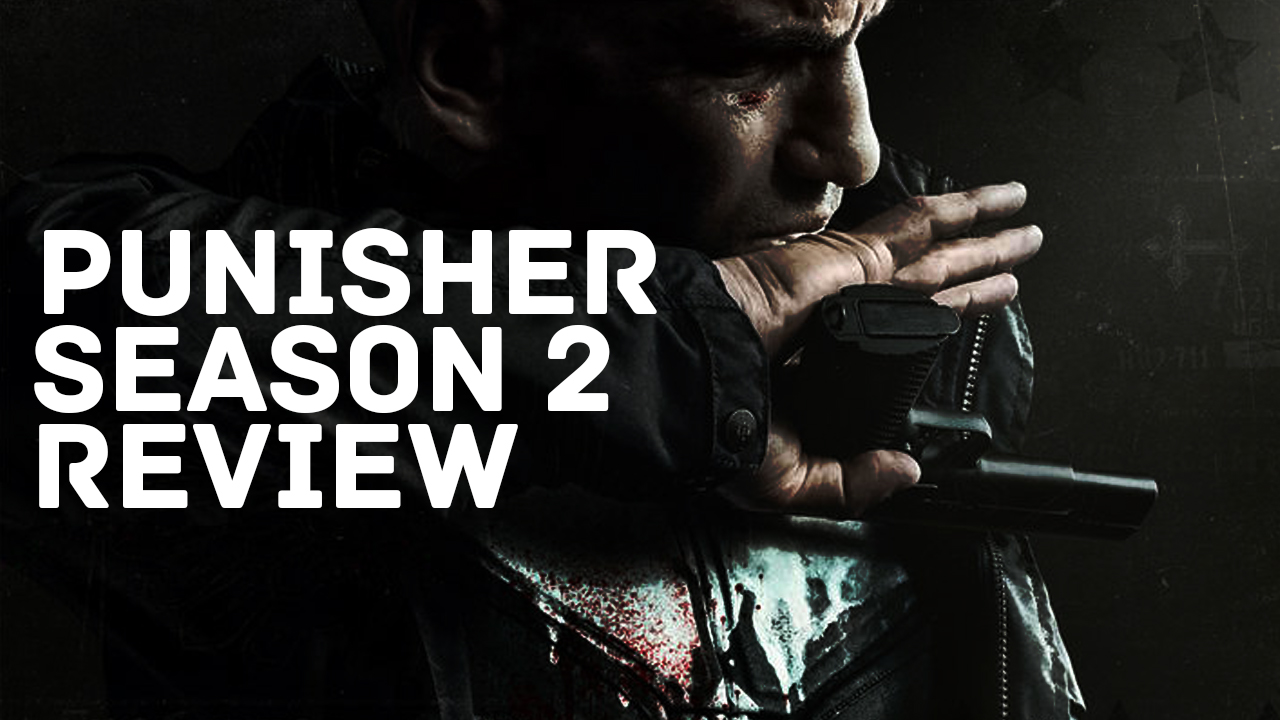
On January 18, The Punisher will be back on Netflix, with Jon Bernthal returning to keep the character alive on a platform where Marvel shows have been producing great quality, but still haven’t been able to survive. Fans were first introduced the the character in Daredevil season two, where fans learned the backstory of Frank Castle, a veteran and father, who’s family was killed in front of him after returning from war. When Castle returned to Netflix for his stand-alone series, we got a slightly altered background story, focusing on his war buddy, Billy Russo, played by Ben Barnes, as a force behind the killing of Frank’s family that day by the carousel.
Season two of The Punisher has some strong moments, particularly in the beginning. While season one hinted that Castle’s fighting days may be over, as he took the identity of Pete Castiglione and sat in on some group therapy, season two shows that Pete is just as much of a fighter as Frank.
The first three episodes are the best of the season. These could stand-alone as a new series about Pete living in the Midwest trying to carry on with a normal life, but his protective instinct pulls him into trouble. Unfortunately, the show moves Frank to more familiar territory, and after that move the show struggles to find balance. The storyline focused around a gang of religious extremists intent to kill Frank and the young woman he’s protecting never finds familiar territory with the second story, where Billy Russo re-emerges as a threat to New York.
The young woman Frank is protecting is Amy Bendix, a new character brought to life by Giorgia Whigham. Amy joins the other strong women of the series (such as Dinah Madani and Karen Page in Season one) on a path to prove that beneath all of the violence, the Punisher himself is a decent human being.
And that conflict, the humanity of Frank and his ability to kill people without hesitation is a topic of discussion throughout the whole season. Characters confront their own anger, haunted by demons of their past, and try to decide if they can be the type of killer that Castle can be, without becoming the person that he is. At times, it is a bit too much of people staring at their own navels, talking to therapists, and drinking away their emotions. However, ever since The Punisher branched off on his own, the show has crammed it down the audience’s throat that the people on the show are real, and not to be looked at as killers with no chance at redemption. At times this is the show’s biggest flaw – it’s trying too hard to prove that Frank is, and is surrounded by, good people.
Could Billy Russo be one of those good people? As Billy recovers from his injuries incurred at Frank’s hands, his possibility for redemption becomes a major topic. Russo loses a part of himself when he recovers, but it isn’t his humanity. If anything, the character comes back as a more tender, loving person. His arc may have felt more fresh if we had more time between the story of a mentally unstable villain seeking his north star in Daredevil before watching Billy on his own journey of mental healing. However, the therapist that helps Billy find himself again serves as yet another woman around the men of the series that helps remind the audience, and the characters, of their humanity.
I struggle to find much to say about the new villains of the season, a group of religious extremists that want Amy and Frank dead. While the show presents these characters as mysterious villains, it was hard to find a reason to care about their stories, motives, and goals. Something never really clicked to make them more than a way to add material and complexity to a show that could have been exciting enough with the stories available in New York. But they give us Amy, who is a delight, even if her storyline falters.
One high spot in the series is an amazing soundtrack of heart-felt blues renditions of classic songs, woven into emotional moments along the way. Just as Luke Cage takes you to Harlem with it’s sound track, the tunes chosen for emotional moments in The Punisher feel like American simplicity. With acoustic guitars accompanying shoot-outs, it’s as American as the single-wide trailer where Frank and Amy live for much of the season.
If you are still holding out hope for cross-overs between the Netflix shows, you should realize by now that we likely aren’t going to see any title characters showing up without a little bit of hype before-hand. However, Frank does continue to live in a world where New York City only has one cop of note outside of Harlem, and that is the beloved Brett Mahoney, portrayed by Royce Johnson. Johnson comes close to stealing the show in this upcoming season, appearing frequently, with a personality created by being the one person in law enforcement that still cares to follow the rules.
On January 18, you may not want to cancel all plans to watch the series as fast as you can, but the beginning of the season is strong enough to pull you back in, even if you don’t remember many details from Season one. And if we never see more of Frank Castle and his own side of the Netflix MCU after this season, things are wrapped up nicely enough that we won’t be as angry as those that watched all of Iron Fist.
Features
Runaways Season 2 Feels Like A Step Back

Runaways Season 2 is an unusual show to review, in that it is not often a sophomore effort is the first to truly live out the premise of the show. With the so called Runaways staying at home for most of Season 1, the first go round with the teens served as a sort of extended pilot more than anything. The obvious confidence Hulu had in the property, with its almost assured second season, allowed Brian K Vaughn and team to do things in that first season that deepened the foundation of the characters and ultimately should pay off. None the less, Season 2 is the first time we’ve truly seen the teens on the run.
Early on, this new reality helps the show come to life. The obvious hazards of being on the streets, struggling for money and food, and trying to adjust to falling from the 1% to homelessness make for engaging drama in the beginning of the season. This setup gives the show an edge and sense of danger that was too often missing in the first season, filmed mostly in mansions. Sadly the premise is stripped away far too quickly as the characters move into digs that are comic accurate but which also blunt the point end of being a runaway in the first place.
My general concern with this season, and the show in general, is that far too often it feels uncomfortable in its own skin. Some of the time it is a teen melodrama that is almost embarrassed of its super hero trappings. At other times its a super hero show that has long lulls where puberty seems the real villain, not the alien antagonist. Some fans will undoubtedly feel like the mix is just right, giving them just the right dose of each. And the source material, the modern classic comic series, is a bit like that as well. For me it just felt like both halves seem rushed in order to make sure that the other half isn’t underserved. As such the adolescent soap opera doesn’t have space to breath and the comic fight scenes feel far too short.
The challenge of a large cast is obvious in this show. Characters disappear for a few episodes at a time. That’s the nature of this beast. Generally, the show is at its most alive when the characters are all in one room, at least the six protagonists. The wit is fast paced and typically well timed by the actors. It can have an Alan Sorkin kind of electricity in the dialogue. But too often the characters are sent off on character development homework side missions, which don’t have the same energy. Chemistry is what makes and breaks this show and it is often a roller coaster entity in season 2. Some scenes are spectacular and others just lack punch.
The powers and special effects on the show also tend to get under served in production. For a group of kids constantly running head long into trouble, they seem to always leave their dinosaur at home. Maybe just once it would make sense to bring along his muscle, if only the show wasn’t hiding him away lest they over play their puppeteering skill or blow out the budget. One consistently wonders if the brief VFX scenes are due to the desires of the show runner, or a property that maybe is misplaced in TV financing world. Its not that anything looks bad, its just all very short. A mid-season climax point that is clearly meant to be a special effect bonanza ultimately feels like 25 actors looking at each other menacingly without enough things actually happening. In particular, the Runaways as a team don’t manage the kind of combinations and power complementation that makes a team up like the Avengers, Guardians of the Galaxy, or even Quake and Ghost Rider on Agents of SHIELD, so satisfactory.
A mention should quickly be made of the characters and their arcs. Nico is coming to grips both with her new relationship and the fact that she has replaced Alex as the de facto leader of the group. This weight is in fact heavy for her. Molly continues to grow out of adulthood and into a role with more agency. This leads to the kinds of mistakes all people make when maturing. Alex is sort of the outsider after falling out with Nico, so viewers get to see him connect with unlikely people in a new community. Chase is stripped of all the things that made him a hot shot. He’s struggling with a more domestic role and how to show sensitivity. Gert has some personal health issues that throw her off stride. And Karolina is trying to figure out who she really is. This leads her to seek answers in a really questionable place. The performances all have highs and lows, with Allegra Acosta’s Molly maybe being the most consistent character.
Generally the acting in this show gets a little cringe worthy at some times. The material leans so heavily into the world of melodrama its is kind of hard to take some lines and takes seriously. Did they really just say that? Somewhat paradoxically, the show really clicks on two ends of the spectrum. First of all, the relationships and the experiences of hurt ring true. When these characters are people first and superhero second, they tend to be believable. Secondly, some of the world building, particularly some later season flash back work, is interesting and engaging in part because it’s completely over the top. Its just the in between stuff that can be messy.
As a huge fan of Season 1, this second season does feel like a step back. One can see what the show runners are aiming for, but they just miss the execution. The pacing and storytelling are too muddled and ultimately it feels like that hurts the performances. Too many hand break turns are happening for any groove to occur in the show. Actors are trying to do legitimate human emotion on minute and then ten minutes later they’re in the midst of a monologue about cosmic pseudeoscience or engaged in hokey slow mo fights. A lot of good stuff is in this season, and the fans will probably still enjoy it, but the show needs to make more hard decisions about what it really is and what it really wants to be.
Features
How Daredevil Season 3 Depicts the Fight Against Real and Present Fears
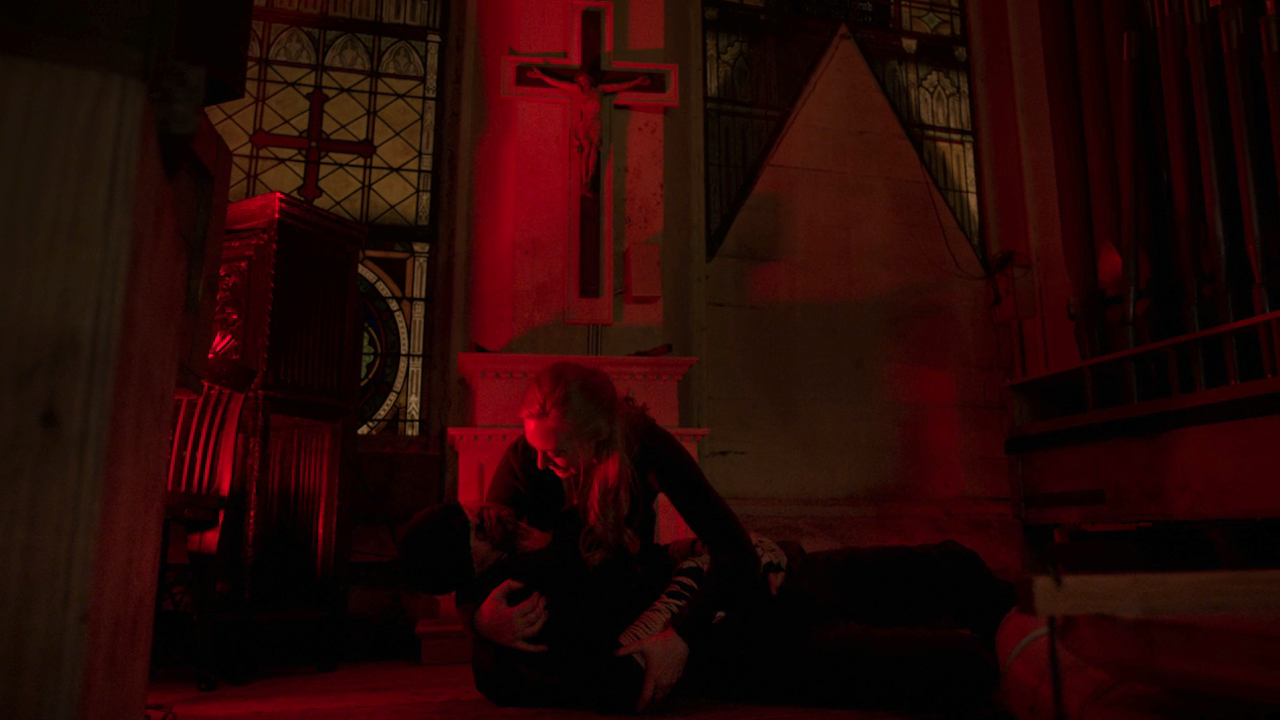
(Content Warning: mass shooting tragedies in the United States; Spoiler Warning for Daredevil season 3)
Those living in the United States have gotten too accustomed to bad news. Every mass shooting, wildfire, and other various tragedies have become distilled to push notifications on phones and headlines on cable news. I’ve felt a certain guilt for an increasing indifference as the bad news has increased in volume, but I felt this even more so when the news finally reached me personally. The Tree of Life shooting in Pittsburgh set something off in me, as I went to school mere miles away from there, and I visited Squirrel Hill for leisure and errands regularly. I felt sorrowful and uneasy knowing that such a nefarious act was committed in an area I once considered to be practically my backyard.
It had an eerie and troubling effect on a piece of media that I treasured, as only a couple of weeks before this real-life tragedy, Netflix released season 3 of Daredevil, which prominently featured a chilling scene of a fatal attack on a place of worship.
What that television show did might not necessarily be bad taste, as it released before the real-life analogous event occurred—it isn’t the same situation where the Las Vegas shooting prevented the apparently-planned early release of The Punisher, or Paramount executives scurrying and attempting to release their Heathers television reboot in piecemeal, attempting to slip their tone-deaf program in-between real-life tragedies. Still, the proximity in date alone puts a shroud over Daredevil in my eyes, and a rewatch is impossible for me without associating it with the act of hate and domestic terrorism that happened in a city I love.
I eventually thought back to the words of Erik Oleson, the showrunner of Daredevil’s third season. I attended the Daredevil New York Comic-Con panel, where Oleson presented his thesis statement for season 3—it would be about “combating fear and the narcissistic tyrants that weaponize it.” The Tree of Life shooting is not the only recent news event that could be analogous to events in his show, and none of these were unfortunate coincidences—these were by the show’s design. Daredevil season 3 tapped into our real-life fears and anxieties, and like practically all superhero fiction, it presented a fantastical story where those fears were conquered.
To anyone at that NYCC panel with their finger on the pulse, it was obvious just what (or who) Oleson was referring to. Wilson Fisk, finally embracing the role and appearance of the Kingpin, is our narcissistic tyrant.
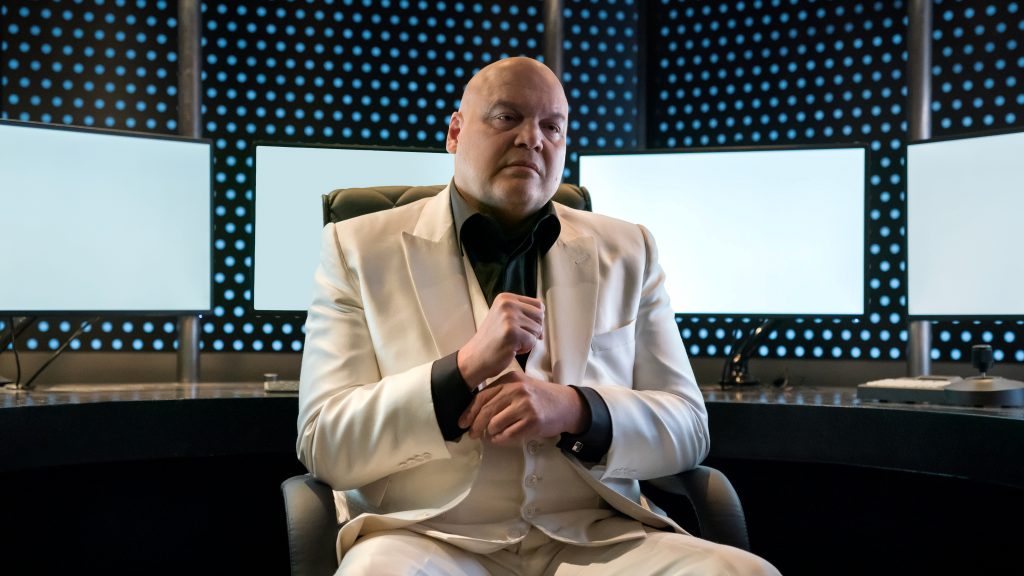
Marvel’s Daredevil
At its bare bones, Fisk’s plan to cultivate a culture of fear isn’t far from how real-life tyrants do so. Despite the general public knowledge of his misdeeds, even garnering chants of “Lock him up!” outside of his lavish New York penthouse, Kingpin is able to obtain the trust of the common citizens. Fisk’s apparent ace in the hole is a fake Daredevil, with a skilled FBI agent that Fisk himself corrupted donning the red horned costume. With this terrorizing Daredevil imposter, Fisk creates a new public enemy for all to fear, projecting an image of power and safety that only he could provide.
And the imposter in question, Agent Pointdexter, is a troubled man with psychopathic tendencies and a desire to learn about empathy. Found in a vulnerable position, Dex is manipulated and deceived to enact Fisk’s plan of wide-scale gaslighting. And as we find out later in the season, Fisk’s corruption and manipulation of institutions such as the FBI has reached an absurd point. No character in Daredevil season 3 can better personify this than Agent Ray Nadeem.
In a period of time where many in the public are less trustful of law enforcement officials and the institutions that enable and protect them, it may be harder to swallow more idealistic portrayals of them through fictional portrayals. Not everyone is Special Agent Dale Cooper from Twin Peaks or the lovable bunch in Brooklyn Nine-Nine. But there was something captivating about Nadeem’s own troubles and anxiety that brought him down to a more grounded level. His anxiety was economically-based, as a result of covering his sister-in-law’s health care coverage. Seeing a struggling, suburban Indian-American family just barely making it was instantly more tangible than the more lavish, romanticized views of such law enforcement officials on television.
I don’t believe that anyone in this season of television had it harder than Nadeem. He is torn between his duty to provide for his family, his own moral, ethical code, his loyalty to his agency, his friendship with Dex, his desperation to fight through the bureaucracy denying him a larger paycheck, and so many other forces that are in play. By the end of his plight, Nadeem leaves a mixed legacy. While he was complicit in many of Fisk’s crimes, he was also key to bringing the entire operation down. In a season where FBI agents are shown to be corrupt in a cartoonish fashion through a boardroom scene, Nadeem being the only one with an apparent conscience gives slight “not all cops” vibes, while at the same time being truly reflective of the hidden fears and anxieties even within the upper-middle class that can be exploited by bad actors.
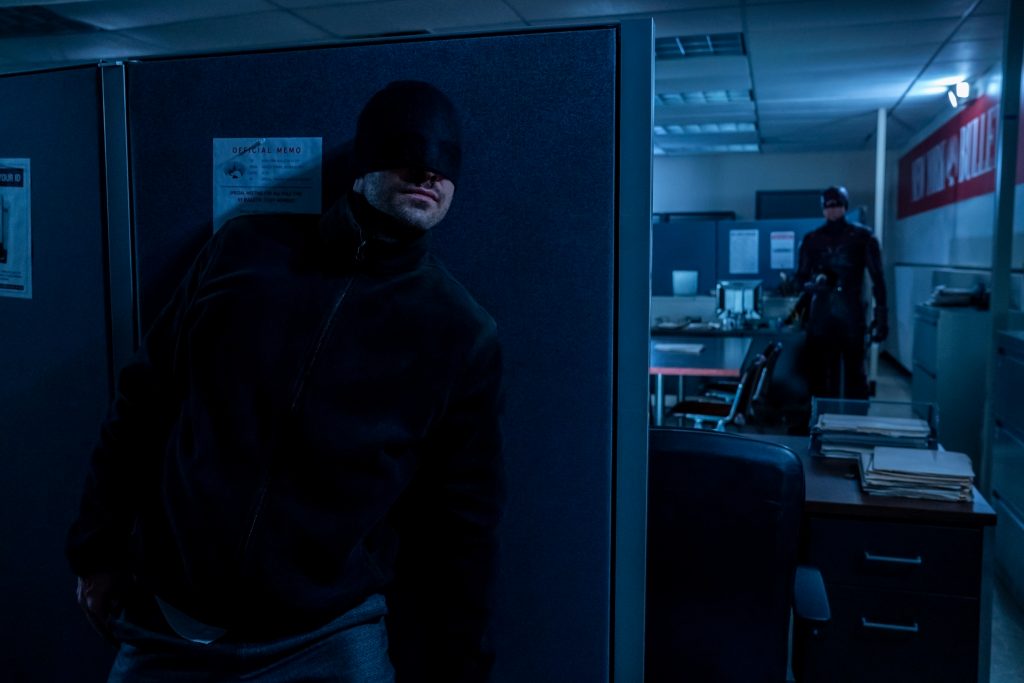
Marvel’s Daredevil
Let’s rewind back to the point in which the paths of Matt Murdock, Dex, and Nadeem all converged, in a manner orchestrated by Fisk. There was something powerful and fateful about the first meeting of the two “Daredevils”—halfway through the season, both characters have individually gone through radically different journeys of self-exploration, and the clash between the two was like a chemical explosion. While I reveled in the creativity of the choreography and the display of Dex’s ability when the New York Comic-Con showed off the Bulletin fight sequence, something seeped into my head on my repeat viewing weeks later.
I had a sinking feeling that the context of the scene, with Dex murdering New York Bulletin journalists, and the fight scene taking place in their office space, was meant to be a reference to another recent tragedy. It seemed to me at the time that this unsettling sequence was meant to mirror the real-life June 2018 shooting at the Capital Gazette building, home of publications The Capital and Maryland Gazette, where five employees were killed.
It was sometime before writing this piece that I did my due diligence and found that production of Daredevil season 3 ended earlier in June, a couple of weeks before the tragedy occurred. For the most part, similarities were mere coincidence. Still, anyone with their ear to the news in the United States knows fully well that this anti-journalist sentiment was alive and well before this attack. One of the more important pillars of our modern society is that of the journalist and the news publication, having the freedom to hold those in power accountable to the truth. Likewise, these Bulletin reporters, led by Karen Page, were working on a piece that would have shed some light to Wilson Fisk’s fragile situation. Fisk nailed two birds with one stone, dispatching of the opposition, while also creating his false public enemy.
As with the aforementioned church attack in the show, the timing between the show’s premiere date and real-life events yet again produced an unusual effect. Another pillar of our society, one based on worship and faith, was under attack by violent forces. While these fictional and real events have no direct relationship, this frightening sequence was certainly based on a real attitude of intolerance that has been pervasive for the longest time. The context and scenario are different from reality, but the imagery remains the same to recall such real-life fears and anxieties.
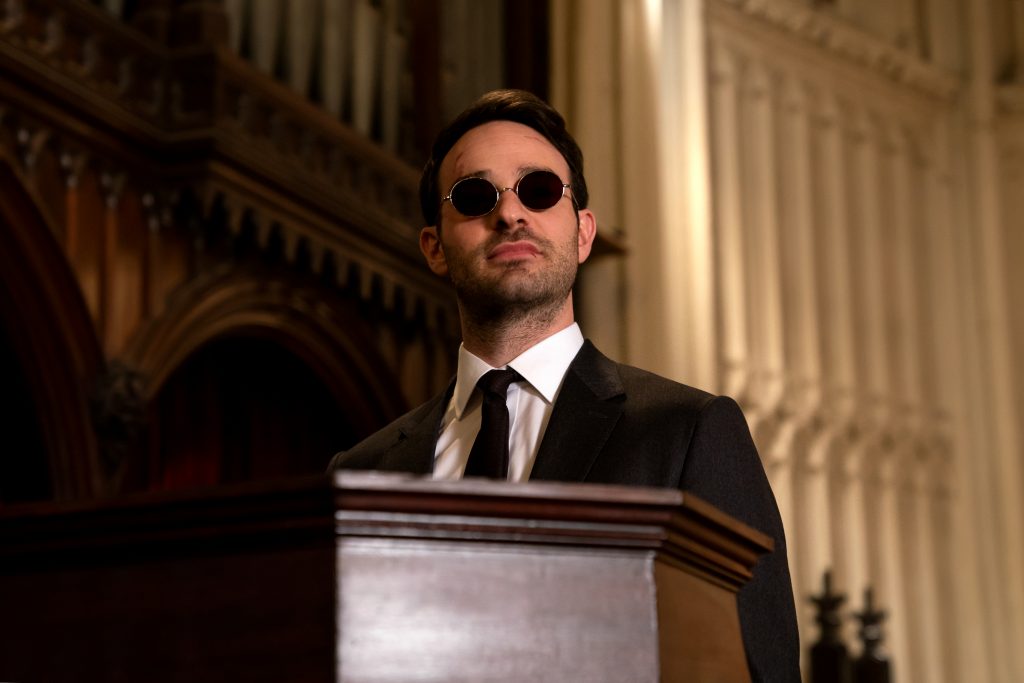
Marvel’s Daredevil
Our main characters of Matt Murdock, Foggy Nelson, and Karen Page eventually get to a point where they must decide how to solve this impossible dilemma. The idealistic Foggy still firmly believed in the United States justice system, while a weary Matt believes that his vigilantism is the only solution. In real life, the justice system has been exploited, abused, corrupted, and has overall acted as a counter in favor of bad actors—I remained unsure of which method the show was advocating for. In the end, it seemed to favor a one-two punch combination.
If anyone is looking towards fantasy for solutions to real-life problems, they will find themselves sorely mistaken. Our current problems with combating cynicism, authoritarianism, and other negative forces will not be solved by two macho guys mercilessly punching each other in the face. While nothing will convince me that all art and media isn’t political, I will concede that entertainment such as Daredevil is meant to be escapism. I would argue, however, that the concept of “escapism” is grossly understood.
Not all escapist fiction is meant to completely take you away from the clear and present societal and personal anxieties. Rather, much of it is meant to take you to a place where those fears and anxieties can be confronted and defeated in a fantastical way—maybe it’s with a sword and shield, super strength, or the ability to fly. This is the fantasy that superhero fiction is able to provide.
Daredevil season 3 will obviously not solve any of our real-life problems—but it demonstrates that something as fantastical as the MCU can be very powerful by recalling realistic imagery and sentiments. In a society where people are fearful to live their regular lives under the threat of violence, however real or false that threat may be, and with bad actors exploiting that very fear, we need a fantasy like Daredevil. Season 3 is all about how he earned the famous moniker “the Man Without Fear.”
Daredevil may not be able to save us in real life, but perhaps for some people, he could inspire them to be just as fearless.
-
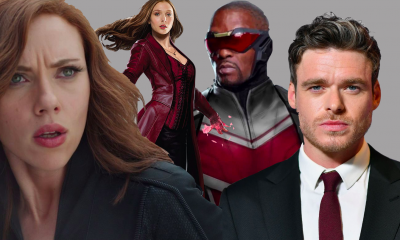
 Marvel News Desk4 years ago
Marvel News Desk4 years agoBold 2020 MCU Predictions-Marvel News Desk #145
-
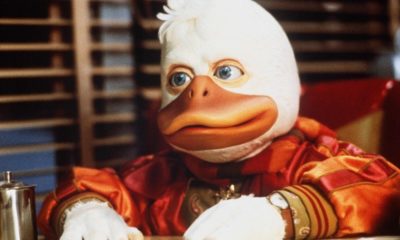
 Features6 years ago
Features6 years agoHoward the Duck: The First MCU Movie?
-
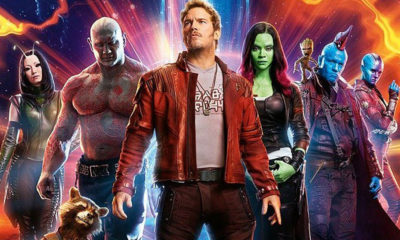
 Lists6 years ago
Lists6 years ago5 Characters We Want To See In ‘Guardians of the Galaxy: Vol. 3’
-
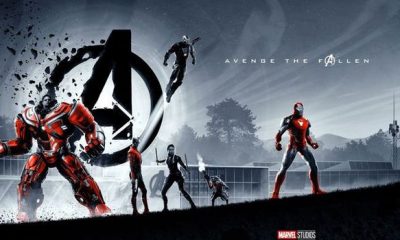
 Uncategorized5 years ago
Uncategorized5 years agoAvengers: End Game Spoiler Review-Marvel News Desk #114
-

 Features5 years ago
Features5 years agoRunaways Season 2 Feels Like A Step Back
-
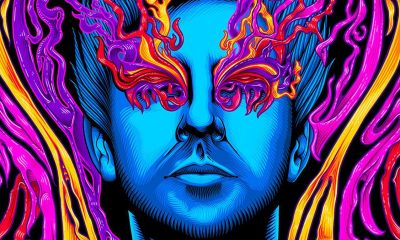
 Marvel News Desk5 years ago
Marvel News Desk5 years agoLegion, S.H.I.E.L.D., and Jessica Jones TV Review Central-Marvel News Desk #123
-
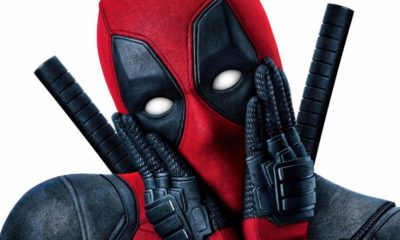
 News6 years ago
News6 years agoCONTEST: Win a Digital Copy of Deapool 2 Super Duper Cut & Deadpool
-
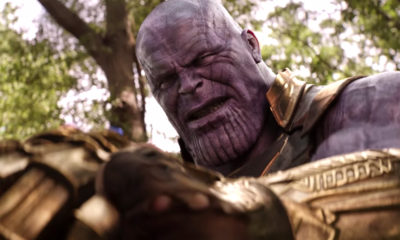
 Marvel News Desk5 years ago
Marvel News Desk5 years agoDisney+ Revealed and Infinity Saga Retrospective-Marvel News Desk #113


